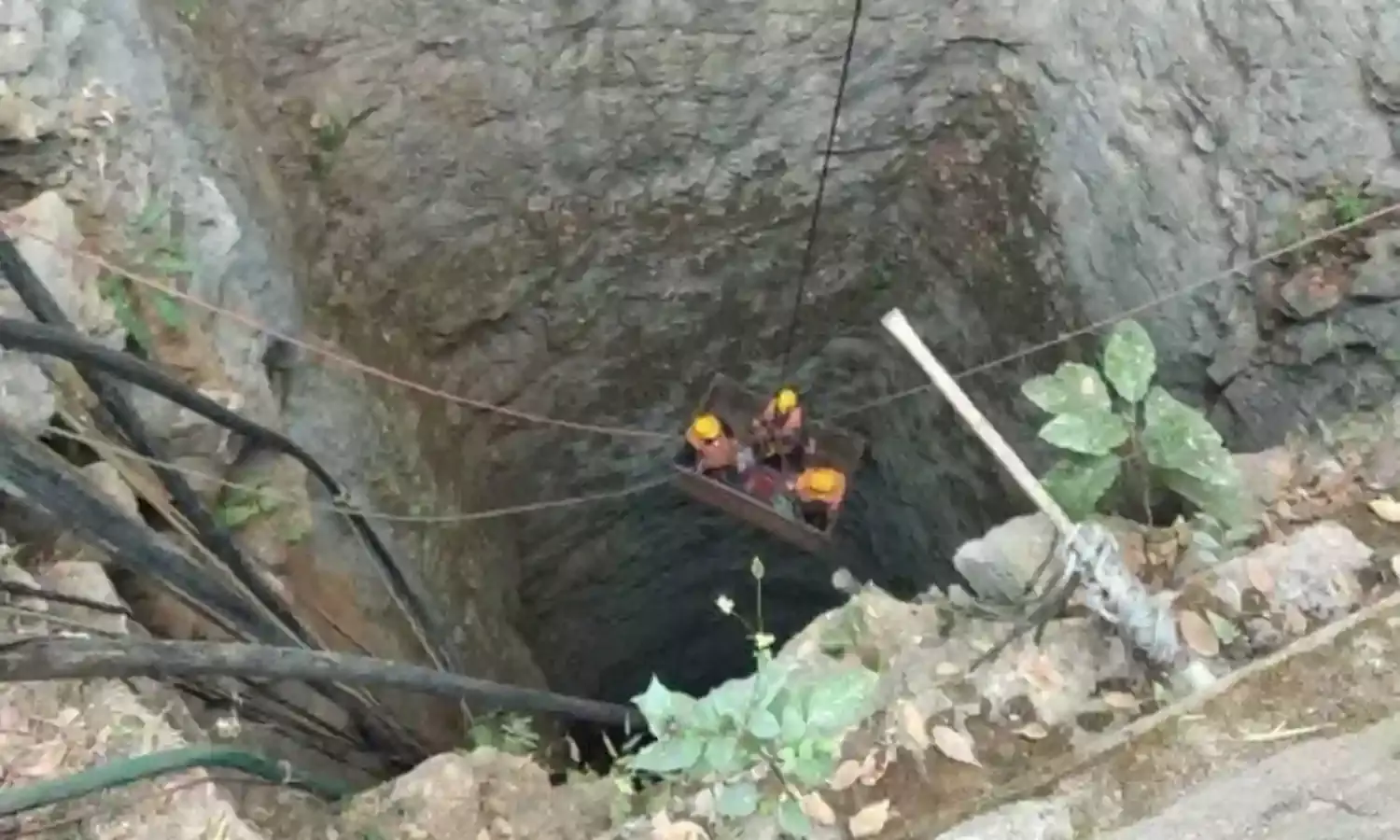Coal Mafia +Politician +Police Protect the Killing Mines of Meghalaya
'Rat mines' often deploy minor children

ITANAGAR: On December 13, twenty men entered a 370-foot-deep illegal mine in Meghalaya’s East Jaintia Hills district. Two weeks later, 15 of them are still trapped inside it as rescue operations remain suspended for lack of better equipment.
Known as “rat-hole mines”, the mines in Meghalaya are pits with small openings that can be accessed by just one person at a time. Workers then dig to find coal seam and “rat-hole” tunnels are dug horizontally to extract coal, most of which goes out of the state into neighbouring Assam. The small size of these tunnels means that most full-grown adults cannot enter them and often minor children are deployed.
The dangerous conditions under which these miners have to work under came to the spotlight after Assam-based organisations, All Dimasa Students’ Union and the Dima Hasao District Committee filed a petition in the National Green Tribunal (NGT) on the ground that the mining exercises had caused the water in the Kopili river to turn acidic.
The NGT had banned the practice in 2014 but illegal mining continued unabated and unchecked.
Sources said that this latest incident may have been triggered by miners accidentally digging into the walls of a tunnel from which water from the Lytein river may have already been flowing, causing the water to gush in and trap them.
Rescue operations by the National Disaster Response Force have been temporarily suspended for want of better equipment to pump out the water. An exercise that activist Jaynie Sangma said is futile.
Speaking to The Citizen, she said that the water that has the miners trapped is from the river and that it is not possible to pump it out.
She said that the ban has done little to stop mining in the area and that everyone is aware of it.
“There is a nexus between the coal mafia, politicians, and police. How else can even a single truck go out of the state without their knowledge,” she said.
Illegal mining in the state is so rampant that even chief minister Conrad Sangma admitted to it recently to the media.
“We admit to illegal mining in the area and will take action. This is not acceptable,” he had said.
Jaynie Sangma said that the benefits of the mining operations are mostly reaped by those from outside the state and that the local populace is unable to speak out against it.
Those who do dare to, face threats and in at least one recent case, violence.
Last month, activists Agnes Kharshiing and Amita Sangma were attacked in the Sohshrieh area in the district by people suspected to be part of the coal mining mafia.
The two had gone to the area after hearing reports that mining was still being illegally extracted and transported from the area.
Now, the state government has sought high-powered submersible pumps from Coal India Ltd to help with the rescue mission but after two weeks in a flooded mine, hopes seem dim.
While the owner of the mine has been arrested, Jaynie said that the government must now look to formulate a mechanism that can lift people away from poverty.
“Those people working in the mines are not there by choice. They are compelled to work under such conditions,” she said.



